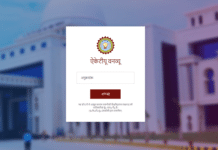Managing Chronic Conditions in Summer: Comprehensive Tips for a Healthy Season
Introduction
Summer brings warm weather, long days, and opportunities for outdoor activities; it is enjoyable but presents unique challenges for people with chronic ailments. During summer, managing chronic diseases calls for carefulness and a proactive approach to prevent such exacerbations and complications. This article provides an exhaustive guide on how to effectively manage chronic conditions in the summer, covering hydration, medication management, physical activity, diet and other important factors that will ensure a safe and enjoyable season.
Understanding Chronic Conditions
Chronic diseases are long lasting problems that usually require continuous medical attention as well as adjustments in lifestyle. Some of the common examples of chronic diseases include:
- Diabetes
- Hypertension (High Blood Pressure)
- Asthma and Chronic Obstructive Pulmonary Disease (COPD)
- Heart Disease
- Arthritis
- Chronic Kidney Disease
- Autoimmune Diseases
All these diseases can be influenced by environmental factors like heat or humidity thus making it necessary to have specific strategies during summer time.
Importance of Hydration
Hydration is critical especially for those with ongoing health issues. Symptoms can worsen if dehydration occurs leading to severe health problems.
Tips for Staying Hydrated
Take in plenty of Water: Try to take 8 glasses per day, getting more if you are active or will be spending some time outside.
- Monitor Fluid Intake: Use apps or bottles with scale markings to count how much water you drink every day.
- Avoid Dehydrating Beverages: Do not take too much caffeinated drinks like those containing alcohol and sugar since can cause dehydration.
- Hydrate with Food: Eat fruits and vegetables that contain high water such as cucumber, watermelon and strawberry among others.
- Recognize Dehydration Symptoms: Be aware of signs like dark urine, dizziness, dry mouth, fatigue; when this happens increase fluid intake.
Monitoring Your Condition
Regular monitoring helps manage chronic conditions effectively allowing timely adjustments to treatment plans.
Key Monitoring Practices
- Track Symptoms: Keep a detailed record of your symptoms noting any changes or triggers and discuss this information with your healthcare provider.
- Check Vital Signs: Measure blood pressure or sugar levels regularly as advised by your doctor.
- Use Technology: Utilize health monitoring devices and applications so that you keep tabs on the progress of the condition in real time and report any concerns promptly.
Medication Management
Heat and humidity may affect both medication effectiveness as well as its storage requirements.
Safe Practices for Medication Use
- Meet Your Physician: Find out from your healthcare provider whether the summer temperatures might necessitate adjustments in your medications.
- Suitable Storage: Drugs should be stored in cool, dry places. Do not let them stay in cars under hot weather conditions.
- Proper Timing and Dosage: Take these medicines as prescribed by your doctor.
Preventing Overexertion
Despite the importance of regular exercise, it is important to avoid overexerting oneself because this may worsen chronic conditions.
Smart Ways to Exercise
- Cool Time Workouts: Participate in morning or late evening activities when the weather is cooler.
- Take It Easy: Have plenty of rest periods and don’t engage in high intensity exercises during peak heat times.
- Respond to Body Signals: If you experience dizziness, are short of breath or feel extremely tired, stop exercising immediately.
Dressing Appropriately
What you wear can make a big difference in how well you handle temperature extremes.
Clothing Tips
- Lightweight Materials: Opt for baggy clothes made of cotton-like materials that are light-colored which allow air through them easily.
- Protection Equipment: Put on wide-brimmed hats and sunglasses while also applying broad-spectrum sunscreen with at least SPF 30 protection factor to guard against ultraviolet radiation from the sun (American Cancer Society, 2019).
- Layer Up Accordingly: Change into different attires depending on how hot or cold it feels outside even if it means adding more layers or removing others as needed.
Remaining Cool
In order to prevent heat-related illnesses, it is crucial that you keep your body temperature regulated.
Cooling Techniques
Use Air Conditioning: Stay in air-conditioned areas especially during the hottest hours of the day.
Take Cool Showers: Decrease your body temperature using cold showers or baths.
Seek Shade: While outside remain in shady areas as much as possible.
Fans and Cool Cloths: Assist yourself by applying cool and moist cloths and using fans to put off excessive heat from your skin.
Planning Outdoor Activities Wisely
To avoid health issues, outdoor activities should be planned for with caution.
Hints for Planning Activities
Check Weather Conditions: Observe any warnings about heat waves and arrange for related programs accordingly.
Bring Essentials: Carry water, snacks, and required medicines.
- Know Your Limits: Recognize your physical limitations so you don’t overdo it when exercising or participating in recreational activities like walking or biking that can lead to dehydration in hot weather.
Diet and Nutrition
When one has chronic conditions then particularly during summer seasons, there is need for a well-balanced diet which will help manage them effectively
Nutrition Tips
1.Eat Lightly: Rather eat smaller more frequent meals which are simple to digest.
- Hydrating Foods: Consume fruits and vegetables that have high concentrations of water content in them too as they assist a lot in maintaining healthy hydration levels within the body system since they possess considerable water content levels predominantly due to their high value of moisture content which stands at 90% (Stikaite et al., 2017).
3.Balanced Diet: Make sure your body gets enough nutrients so you can stay healthy and energized all year long.
Heat-induced illnesses are quite dangerous, especially for those individuals with chronic diseases.
Symptoms and Prevention
- Be Aware of the Symptoms: These include dizziness, queasiness, headache, fast pulse rate and disorientation.
- Respond Immediately: Exit to a cold place and call in medical personnel if signs of heat exhaustion or stroke appear.
- Prevention Measures: Keep cool by drinking water to stay hydrated and avoiding vigorous activities during extreme temperatures.
Managing Stress
The summer season brings exhilaration and anxiety. It is important to manage stress for the sake of one’s general welfare.
Techniques for Stress Management
- Relaxation Methods: Such as deep breathing, meditation and yoga practice among others can be very helpful.
- Stay in Touch with People: This way you will always have people who will be there when you need them most – your support network must remain intact even when you are far away from home.
- Healthy Lifestyle Choices: Ensure enough sleep, maintain a healthy diet that consists of all food types and engage in regular exercise activities.
Smart Travel
People may enjoy traveling but those having chronic conditions could face some difficulties.
Travel Advice
- Plan Ahead: Find out if there will be any available medical facilities at your destination besides making sure that you do not run out of your medications at home before leaving for the trip.
- Remain Informed About Your Condition: Take note of any health warnings or disease prevention measures that may apply to your case during travel to such places.
- Carry Essentials: Include a travel first aid kit with essential drugs, emergency numbers, and contact information.
Regular Health Checkups
Regular checkups are important in the proper management of chronic diseases.
Health Checkup Tips
- Pre-Summer Checkup: Book an appointment for medical examination before summer time in order to discuss possible risks and get individual advice.
- Follow Up: Maintain regular visits to your doctor’s office to monitor the condition of your health.
- Prepare for Appointments: Prior to your appointment make sure you have a list of symptoms, medication and any queries you might have.
Conclusion
Managing severe conditions during summer calls for preplanning and meticulousness. By staying hydrated, observing your condition, adjusting medications, not overdoing on fatigue or going into strenuous activities, dressing appropriately, keeping cool always wisely planning activities; keeping a tight nutrition program; identifying heat ailments quickly; being stress free all the time; having smart traveling plans full of regular health checkups among others has helped them maintain better controlled state of their chronic conditions during the summer months. For personalized advice and recommendations specific to your own condition always consult with your healthcare provider. Summer can be successfully navigated while protecting one’s health by adopting appropriate strategies that are tailored towards one’s unique situation as well as enjoying it fully in the company of friends and family members alike.


























